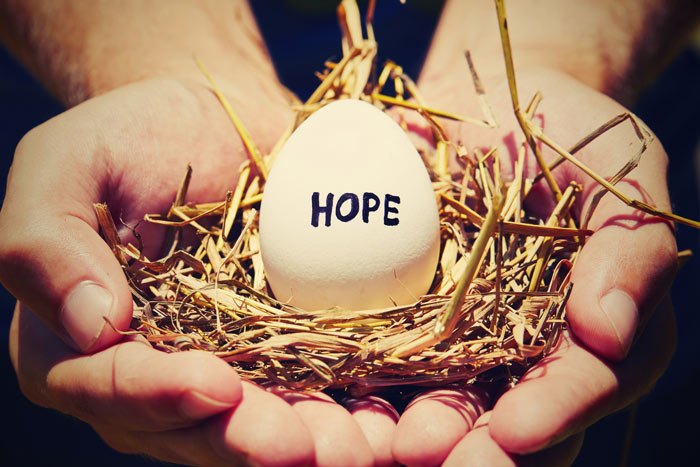Life comes with certain expectations.
You expect to go to school, find a job, fall in love – most couples, however, don’t expect to have trouble getting pregnant. For many men and women, donor egg IVF is the answer to their troubles.

Making the decision to donate your eggs is not a simple one, but the beauty in being able to make the choice is something unprecedented.
Want to know more about what’s involved with the process?
Here’s a quick look at some of the common questions and concerns women have about donating eggs.
Why Should You Consider Egg Donation?
There’s no black and white reason for a woman wanting to become an egg donor.
Perhaps your reasons are financial – you could be a recent graduate battling student loans and high unemployment rates. Maybe you’re looking to do a little traveling before you settle down into adulthood, but don’t have the funds to do so?
Or maybe a personal experience led you down this path. Many women who have watched family or friends struggle with infertility feel a compulsion to donate and try to help other couples in similar situations.
Whatever your reasons for considering donating your eggs, it’s important to realize what an altruistic path it is. Egg donation can be a trying journey, but it’s also one of the most selfless gifts a woman can give.
Who is a Candidate for Egg Donation?
Despite the large demand for egg donors, there are strict regulations prohibiting ‘just anyone’ from donating. Clinics from across the country have a list of standard requirements a woman must meet before she’ll be accepted as a donor.
Here are just a few of those qualifications:
- You must be between the ages of 21 and 33.
- You will need to self-administer injectable medications.
- You must be willing to undergo tests including, but not limited to:
- Drug Tests
- Psychological Screenings
- Physical Examinations, including transvaginal ultrasounds and pelvic exams
- You can’t have any sexually transmitted diseases.
- You’re required to have at least three months of available time.
 What Occurs During the Egg Donation Process?
What Occurs During the Egg Donation Process?
After you’ve completed the application process, the physical procedures will begin.
After you qualify, you will promptly start taking a variety of ovarian stimulation drugs. These medications will assist your body in producing a greater number of mature eggs than would typically occur during a woman’s cycle.
As these prescriptions are injectable, you’ll be instructed by your clinic on the best, most efficient ways to administer them. While giving yourself a shot may seem scary, you’ll find it’s relatively painless and simple.
Throughout the stimulation phase, your progress will be monitored with transvaginal ultrasounds and blood work.
These tests occur frequently, sometimes even daily, and are essential to the success of the treatment. They will assist your doctors and nurses in managing your treatment and preventing any harmful side effects, such as the development of rare complications like Ovarian Hyperstimulation Syndrome.
Once your body has completed the stimulation process, you’ll administer a “trigger shot” that releases your eggs for retrieval.
During the surgery, you’ll be put under with general anesthesia and your doctor will extract each of your developed eggs from its follicle with a small needle. The collected eggs will be flash-frozen using a technique known as vitrification, which protects their integrity and eliminates the potential for ice-crystal formation.
The eggs will remain frozen until they’ve been chosen for donation.
What Happens After You’ve Donated Eggs?
During the application stage of this process, you’ll be required to sign a contract relinquishing your rights to any eggs collected.
This can be one of the scariest things to overcome.
While a giving and kindhearted choice, donating your eggs is not easy – there’s nothing wrong with feeling conflicted over your decision. After all, it’s normal and okay to feel a sense of loss and the only true remedy for it is time to reconcile your emotions with the knowledge you’re helping a family become whole.
Infertility struggles are an isolating and painful experience for couples. There are no words to truly explain the despair that comes with an inability to get pregnant.
The eggs you donate are more than just a medical specimen… they’re the answer to a couple’s prayers. They’re the life they’ve been yearning to live and the family they’ve sought to build.
Your generosity will be something they reflect joyfully on for the rest of their lives. Let that thought bring you comfort during any moments of doubt.
About the author
 Heidi Hayes is the Executive Vice President of California Cryobank’s Donor Egg Bank. She has more than 20 years of healthcare experience and has worked extensively in the field of reproductive endocrinology. Having been unsuccessful at traditional IUI and IVF treatments, Heidi personally understands the struggles of infertility. After many years of trying to conceive, she ultimately built her family through adoption and donor egg treatment. She always believed that if she didn’t give up, her ultimate goal of becoming a parent would someday become a reality.
Heidi Hayes is the Executive Vice President of California Cryobank’s Donor Egg Bank. She has more than 20 years of healthcare experience and has worked extensively in the field of reproductive endocrinology. Having been unsuccessful at traditional IUI and IVF treatments, Heidi personally understands the struggles of infertility. After many years of trying to conceive, she ultimately built her family through adoption and donor egg treatment. She always believed that if she didn’t give up, her ultimate goal of becoming a parent would someday become a reality.










